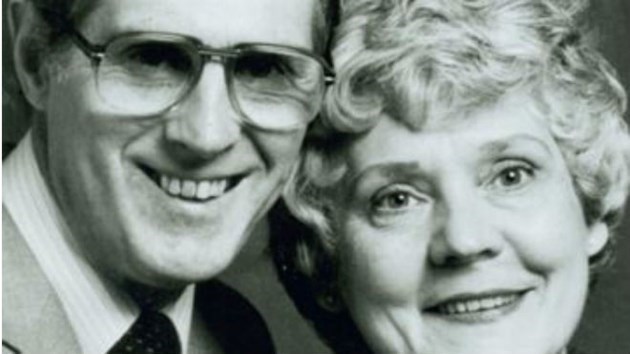The Parole Board of Canada has responded to criticisms of its process from a family whose parents were murdered in 1991, and watched last week as the killer was granted parole.
The case of George Harding Lovie has received considerable attention in recent years, as he has applied to be paroled to a halfway house in Sudbury. Those appeals have been rejected up until last week, when he was granted a six-month stay in Sudbury.
“I felt like we got stabbed yesterday,” Don Edwards said Aug. 29. “I felt like our self-esteem, our dignity was absolutely stripped from us.”
Lovie murdered his parents and tried to kill his sister, Michele. He was out on bail at the time on charges of sexually assaulting and confining Michele, who had broken off a relationship with him.
At the parole hearing at the Beaver Creek Institution in Gravenhurst, the two-person board told the family their victim impact statements couldn't include information about the sexual assault, because it was never dealt with in court, and the board members were already familiar with the charges.
Edwards was also upset that Lovie was being released after serving the equivalent sentence for one murder – “was my dad the freebie?” – and that they had no avenue for appeal of the decision.
“We sat there and took it in the teeth,” he said. “We just took the body punches. We took them all and can't do a damn thing. And now he's (coming to) your town.
“We're targets now. They can say what they want. They (the parole board) should be ashamed of what happened. They should be ashamed.”
Holly Knowles, the board's regional manager, community relations and training, said she couldn't comment on specific cases, but could address questions about their process. She said all victims can submit victim impact statements.
“The board accepts any relevant information a victim may have about safety concerns and the effect the offence has had on them, their family, or their community,” Knowles said in an email. “Some information may be redacted if there are concerns about its relevance, reliability or persuasiveness.”
In regard to Lovie serving the equivalent of one life term for two murders, Knowles said sentences are determined by legislation and imposed by the courts — and the board can't change them.
“However, it is important to note that an offender serving a life sentence remains under sentence for the rest of their life,” she said. “Under the law, all offenders in federal custody, including 'lifers' and those serving indefinite sentences, are eligible for parole consideration at some point in their sentence.
“Although 'lifers' may not spend their entire lives in custody, and may eventually be paroled, they remain subject to control and supervision by Correctional Service of Canada for the rest of their lives. When in the community, offenders are supervised by CSC parole officers and must abide by conditions, or face return to custody.”
By law, the board has to review applications from offenders when they are eligible for parole under Canadian law.
“Once an offender is eligible for parole and puts forward a release plan, the board must assess the offender's risk to reoffend, taking into account the nature of the offence, and any conditions that would be necessary to protect the community,” Knowles said.
“Victim concerns are considered, as well as information from a wide range of sources such as police, the courts, correctional authorities, psychologists, psychiatrists, and social workers. Public safety is the primary consideration in all PBC decisions.”
The Edwards family was also upset they had to attend two parole hearings within two months because the board now only has two members, and a July hearing for Lovie ended in a split decision.
“Split decisions are uncommon, but do happen sometimes,” Knowles said. “The board recognizes that parole hearings can be stressful for victims. Victims who attend an offender’s hearing are always accompanied by a PBC Regional Communications Officer, who facilitates their participation in the hearing by explaining the various procedures and answering any questions victims may have.”
Victims can observe a hearing, she said, present a statement at the hearing, request geographical and non-contact conditions be placed on an offender’s parole, and receive a copy of the decision.
“They may also apply to the Department of Justice to have their travel costs covered to attend the hearing.”
While Edwards said it felt as though the system was tilted in favour of people like Lovie, and against victims, Knowles said victims have a voice in the process, as set out in the Canadian Victims Bill of Rights.
“Victims provide important insights into the offenders' behaviour, the harm they have caused, and any special conditions needed to ensure the protection of the victim and the safety of the public should the offender be granted parole,” she said.
“Public safety is the primary consideration in all PBC decisions.”
